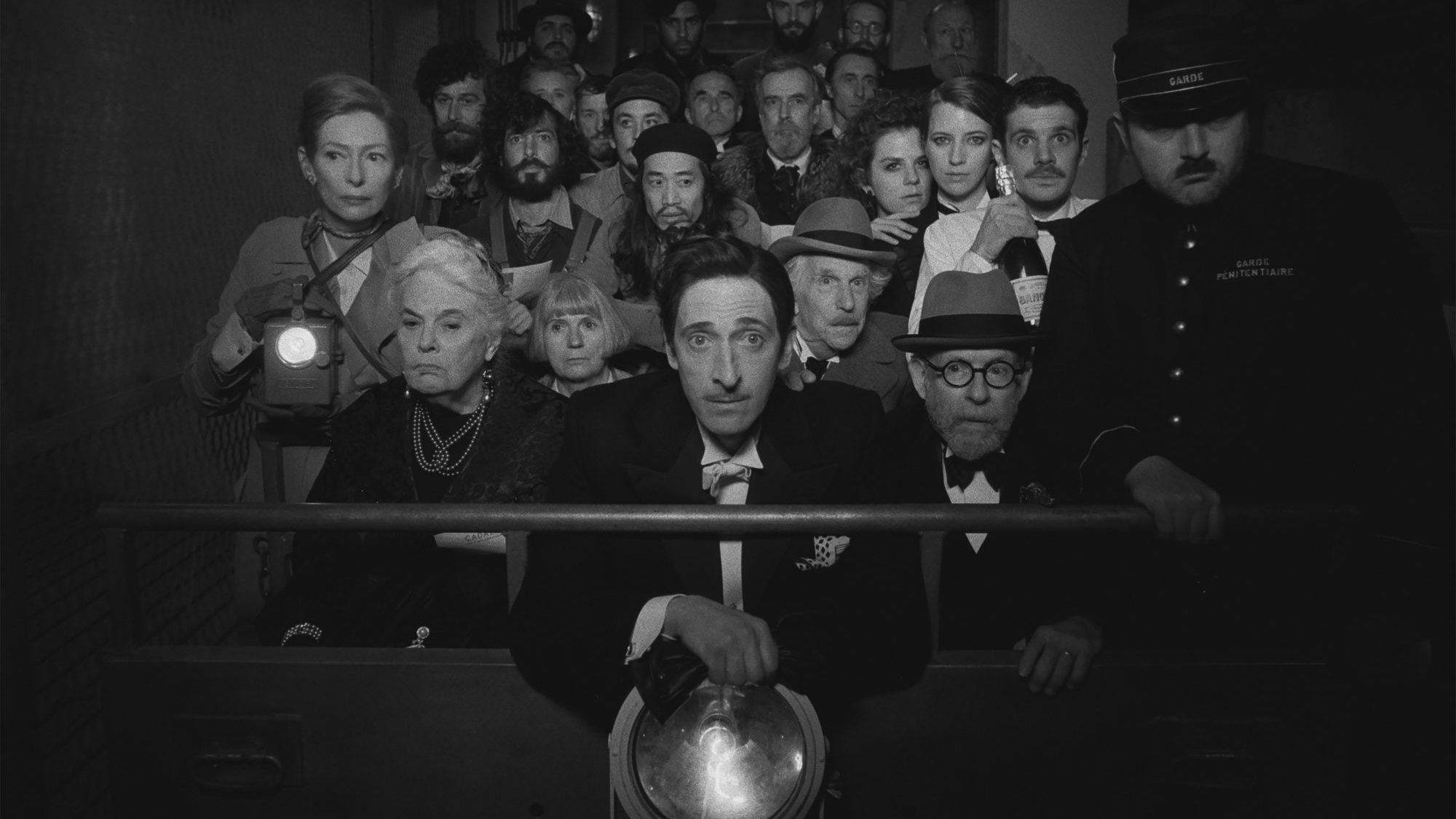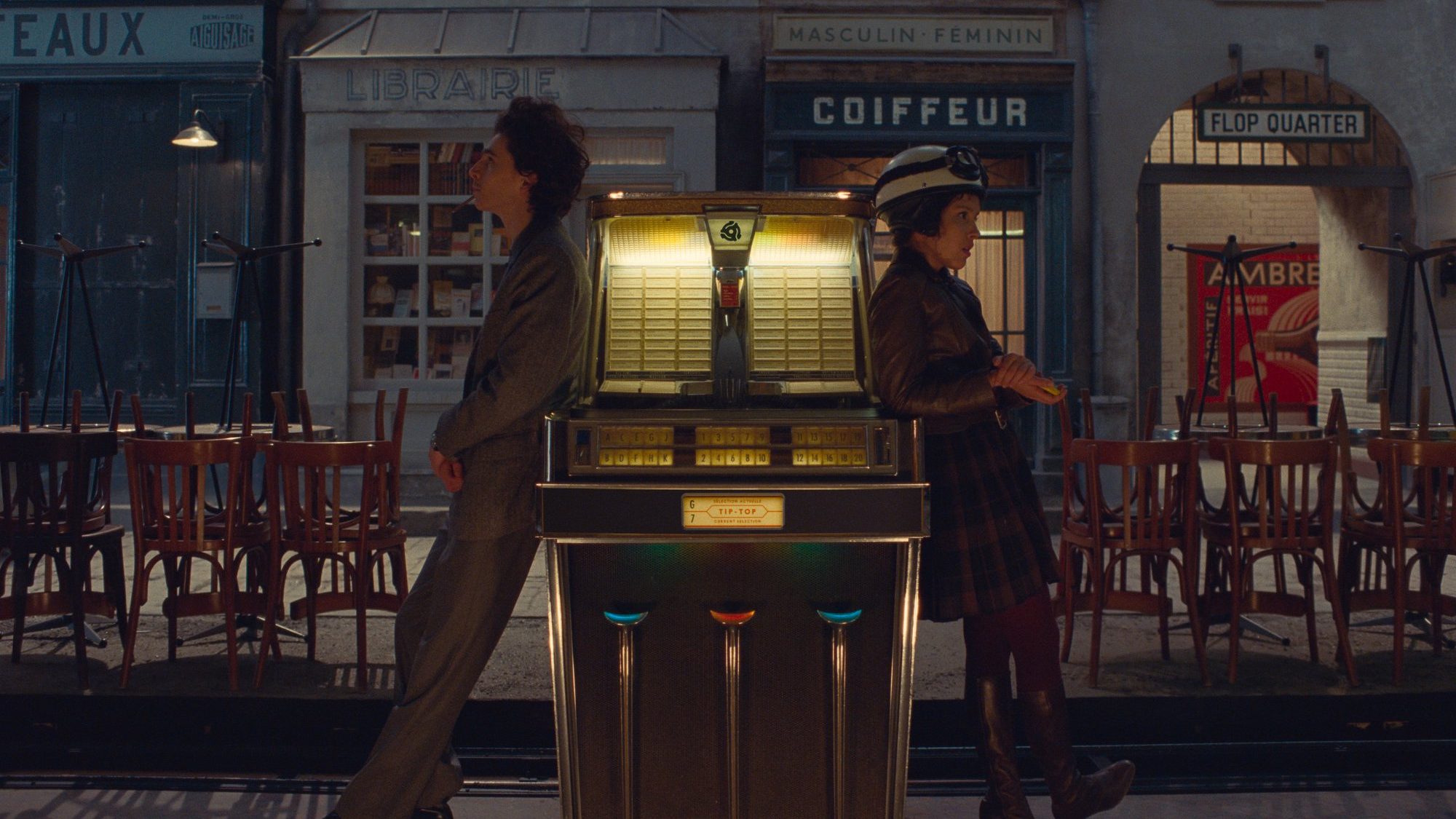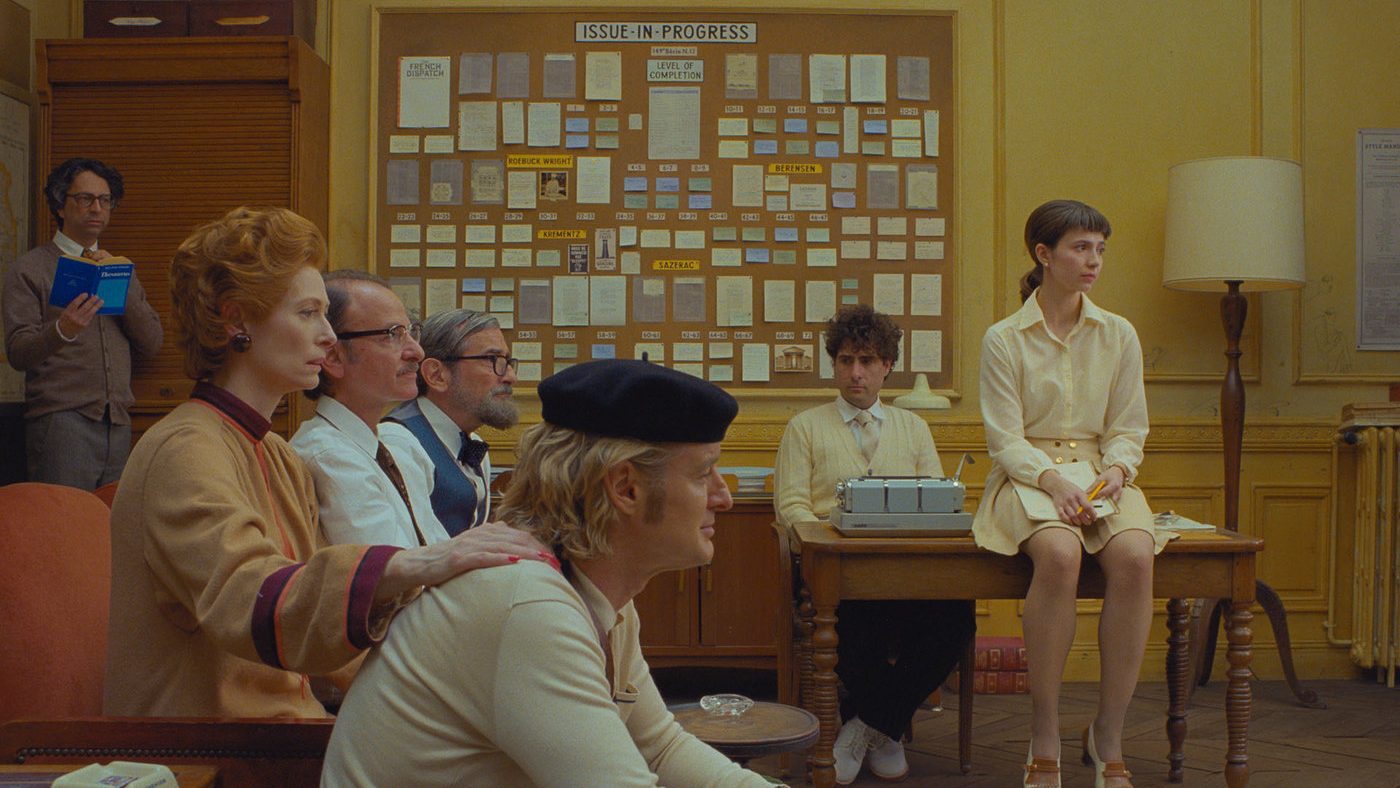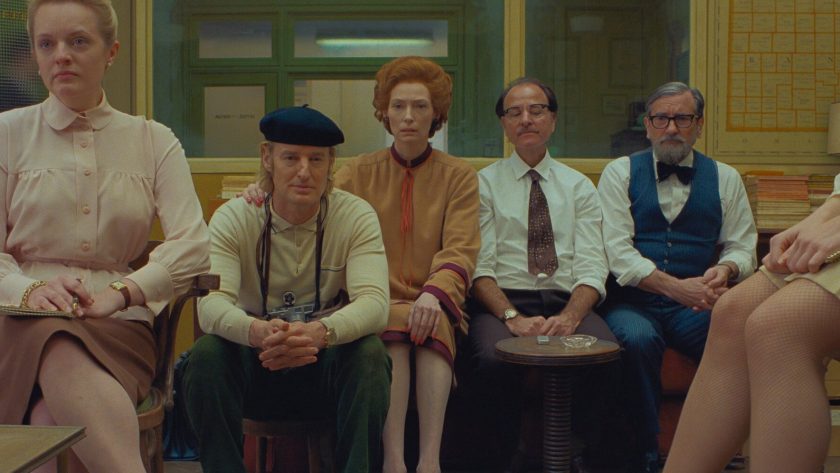BFI’s London Film Festival is in town! The FilmSoc Blog is back for the 65th edition of the city’s largest film festival, delivering a look at the hits and misses of the 2021-22 season.
Bryn Chiappe reviews Wes Anderson’s new long-awaited comedy love letter to journalists! Now premiering at the BFI London Film Festival.
Wes Anderson’s tenth feature film promised a continuation and amplification of everything that audiences have come to love about his trademark style. The problem is that it delivers this too well. The French Dispatch brings us everything we expected and nothing more. The scaling up of the A-list cast and anthology format gives us a bigger dose of the Anderson universe than we’ve ever seen before, but one that also feels more formulaic. At times, the film starts to almost take on a feeling of pastiche – as though Anderson is self-consciously parodying himself, or as though the screenplay was written by an AI that had been fed his previous work as a prompt. This being said, my issues with the film all regard Anderson’s trajectory as a director, rather than the film as a stand-alone piece. If I’d never seen a Wes Anderson movie before, then I undoubtedly would have been blown away by the uniqueness of the film’s aesthetic in the context of big-budget Hollywood cinema. To heavily criticise Anderson would therefore be harsh, but the fact remains that it feels somewhat disappointing to see a director whose vision is so strikingly original reach their tenth film without having developed their aesthetic or thematic choices to a significant extent.

The only example of a striking innovation to the familiar Anderson form that appears here is that of an importation of techniques from the theatre. There are several notable examples of Anderson borrowing and inventing these devices for storytelling across the film, most of which work to great effect and with a satisfying sense of freshness. The obvious case is the excerpt from the fictional play ‘Goodbye, Zeferelli’, where the film literally becomes a stage play for a few minutes, but the cases that really interested me were the smaller touches, those that integrated themselves into the aesthetic seamlessly. Tableaux were used in a truly creative sense for elevating and stylising scenes that could have been shot in a conventional sense, and the dynamism added to the backdrops in cases such as the café walls pulling apart to reveal the street behind gave one fresh eye for appreciating the intricacies of the set design. The emphasis here should be placed on the new lease on life that such techniques brought to everything else going on in the scenes. Through no fault of his own besides sheer output, Wes Anderson has backed himself into something of a corner whereby the richness of his aesthetic decisions have become normalised to the viewer. I’m no longer struck by the attention to detail when I watch one of his films because I’ve come to expect it. When something new enters the fray in a visual sense, it’s as if a brighter light has been switched on, and the vividness of what’s on screen seems to jump out again as new.

I began thinking of the theatre very early on in the film, with Owen Wilson’s charming performance of the journalist Sazerac. His article is a guide through the historical and contemporary Ennui, France, the home of The French Dispatch journal and the setting of the film’s events. For those who’ve seen or read Our Town by Thornton Wilder, the nod of the head is a clear one. In Wilder’s play, the town is ultimately the main character, with the domestic lives that exist within it forming individual parts of the sum total. Sazerac’s monologue seems to promise this being the case with The French Dispatch as he chronicles the daily lives of the people who constitute Ennui, from the outliers of society to the respectable business owners. What follows, however, is a series of stories that feel somewhat disconnected from each other, only cohering together as a result of the filmic style in which they are presented. European architecture and French provincial imagery are certainly incorporated into the Andersonian aesthetic, but the town itself feels like a convenience for binding together disembodied stories that could be taking place anywhere in the Anderson universe.

This leads me on to my initial response when leaving the cinema, one which hasn’t changed after several days. To brutally wrench a quote out of context, I’ll cite Thom Yorke: “I’ve seen too much, I haven’t seen enough”. By this, I mean that the film never really decided whether it was a sprawling epic that brought an entire town to life or a cute, self-contained homage to literary journals. I would have been more satisfied if the film had taken this in either direction and am still feeling somewhat bitter about the fact that the project didn’t develop itself as a limited series with 7-8 episodes, each covering a different story. The anthology format is one that I’ve loved in film before, but in these cases, the emphasis has been placed more firmly on each story constituting segments of a whole greater than the sum of its parts. All this being said, I know for a fact that I’ll be queueing to get into the cinema as early as I can for Wes Anderson’s next film, and that my issues with The French Dispatch certainly didn’t prevent my laughing out loud and gripping the seat in the moments where this was intended. The fact is that Anderson has set the bar very high for himself, and it’s impossible to watch one of his films without thinking about its place in the rest of his oeuvre. My trouble with The French Dispatch is where it sits in the lineage of Anderson’s filmography as opposed to in its own thematic or structural details. A thought popped into my head while watching that I’ve never experienced during one of his other films – ‘is he just going to keep doing this forever?’ If he does, I’ve no doubt that I’ll still go to see the films, but I’ll always be wishing for something more. A Wes Anderson stage play seems the obvious thing to fantasise about now…
The French Dispatch out in cinemas now:




